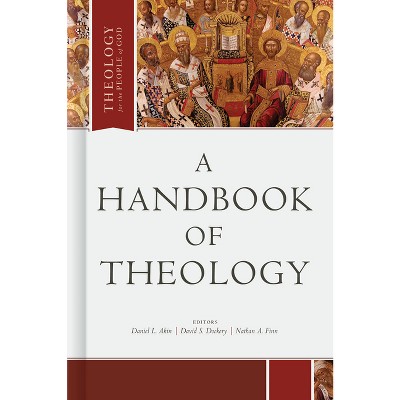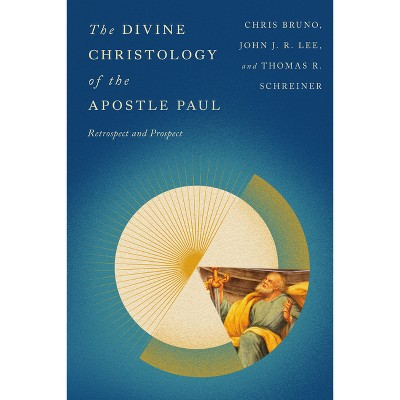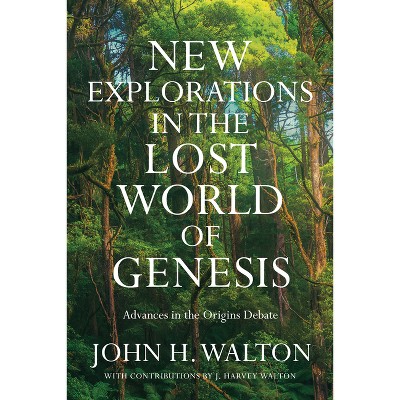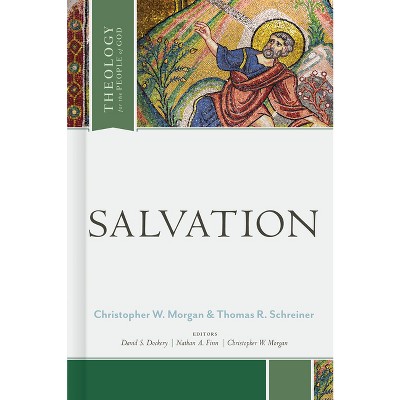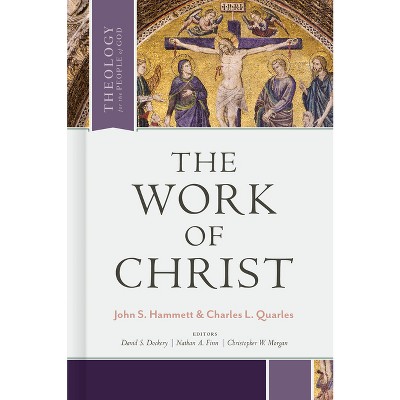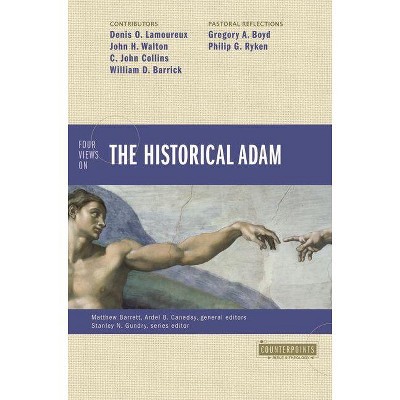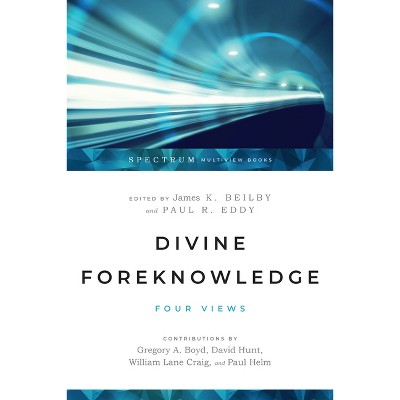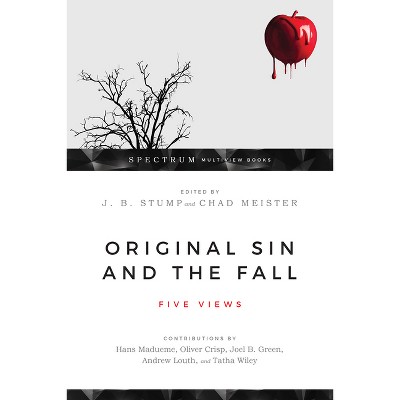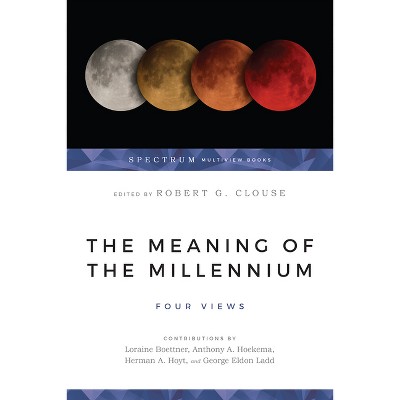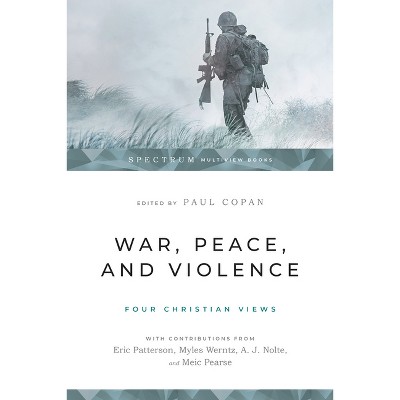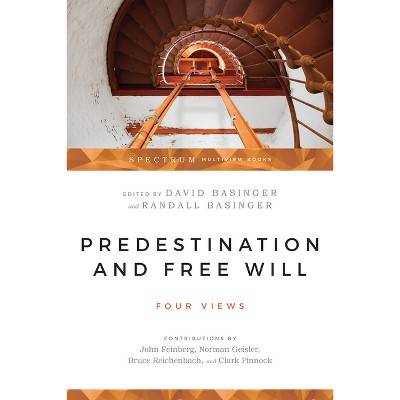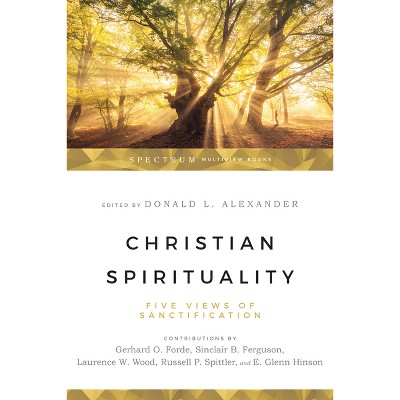Divine Impassibility - (Spectrum Multiview Book) by Robert J Matz & A Chadwick Thornhill (Paperback)

About this item
Highlights
- Does God suffer?
- About the Author: A. Chadwick Thornhill (PhD, Liberty) is the chair of theological studies for Liberty University School of Divinity and an assistant professor of apologetics and biblical studies for the School of Divinity.
- 200 Pages
- Religion + Beliefs, Christian Theology
- Series Name: Spectrum Multiview Book
Description
About the Book
Does God suffer? Does God experience emotions? Does God change? This Spectrum Multiview volume brings together four theologians who make a case for their own view--ranging from a traditional affirmation of divine impassibility (the idea that God does not suffer) to the position that God is necessarily and intimately affected by creation--and then each contributor responds to the others' views.
Book Synopsis
Does God suffer? Does God experience emotions? Does God change? How should we interpret passages of Scripture that seem to support one view or the other? And where do the incarnation and Christ's suffering on the cross fit into this?
This Spectrum Multiview volume brings together four theologians with decidedly different answers to these questions. The contributors make a case for their own view--ranging from a traditional affirmation of divine impassibility (the idea that God does not suffer) to the position that God is necessarily and intimately affected by creation--and then each contributor responds to the others' views.
The lively but irenic discussion that takes place in this conversation demonstrates not only the diversity of opinion among Christians on this theological conundrum but also its ongoing relevance for today.
Views and Contributors:
- Strong Impassibility (James E. Dolezal, assistant professor in the School of Divinity at Cairn University)
- Qualified Impassibility (Daniel Castelo, professor of dogmatic and constructive theology at Seattle Pacific University)
- Qualified Passibility (John C. Peckham, professor of theology and Christian philosophy at Andrews University)
- Strong Passibility (Thomas Jay Oord, professor of theology and philosophy at Northwest Nazarene University
Spectrum Multiview Books offer a range of viewpoints on contested topics within Christianity, giving contributors the opportunity to present their position and also respond to others in this dynamic publishing format.
Review Quotes
"Rigorous engagement with the doctrine of divine impassibility has experienced something of a resurgence in recent years. Though perhaps unfamiliar to many laypersons, the various assessments of this doctrine are of no little consequence to our faith and practice. The editors of this volume have assembled a premier group of authors, who in conversation with one another, have done a fine job of introducing and spelling out many of the aspects of the contemporary debate over divine impassibility in a manner that is not only lively and stimulating but also broadly accessible. Each of the four authors adeptly unpacks the hermeneutical, methodological, philosophical, historical, and theological commitments undergirding his perspective. In tracking those arguments, readers will not only gain a better understanding of each perspective on divine (im)passibility but they will also observe how each view intersects with other key doctrines and proposes practical benefits to our growth as Christians. The editors and authors of Divine Impassibility: Four Views of God's Emotions and Suffering have performed a great service in making this conversation available. I am not aware of a better on ramp for getting up to speed on the current discussion than this volume."
--Rob Lister, associate professor of theology, Talbot School of Theology, Biola University, La Mirada, CAAbout the Author
A. Chadwick Thornhill (PhD, Liberty) is the chair of theological studies for Liberty University School of Divinity and an assistant professor of apologetics and biblical studies for the School of Divinity. He is the author of The Chosen People: Election, Paul, and Second Temple Judaism.
Robert J. Matz (PhD, Liberty) is assistant professor of Christian studies at Midwestern Baptist Theological Seminary.
